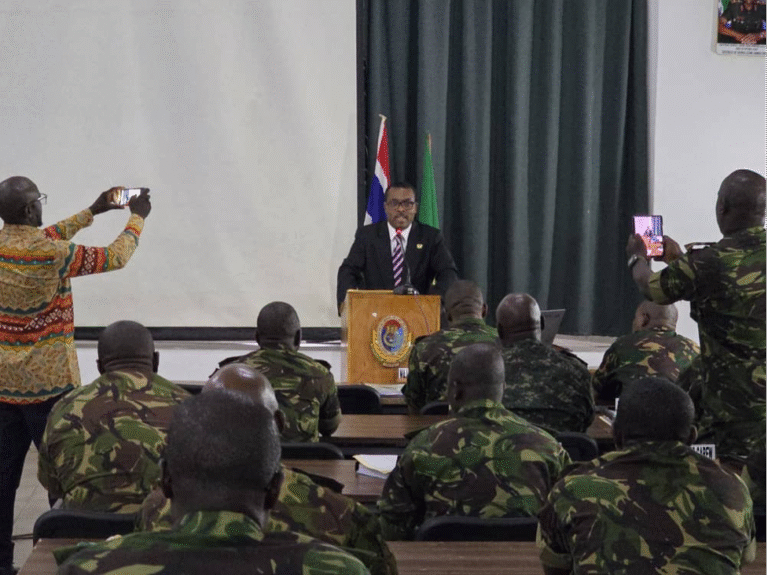The Director General of the National Social Security and Insurance Trust (NASSIT), Mohamed Fuad Daboh, has pledged to leave behind a lasting legacy; one in which no informal worker in Sierra Leone is excluded from the benefits of social security and pension schemes.
Speaking at a high-level gathering held at the Radisson Blu Hotel in Freetown, Daboh emphasized the urgency of integrating the informal sector into the national social protection framework. He noted that over 80% of Sierra Leone’s labor force operates within the informal economy, comprising traders, artisans, market women, and transport operators.
“This initiative is not about charity; it’s about recognition, protection, and empowerment,” Daboh declared. “The success of this scheme will depend on institutional collaboration, coherent policy implementation, and unwavering political will.”
He called for coordinated efforts across government institutions, improved data sharing, joint implementation mechanisms, and strengthened accountability. Daboh also described members of the newly formed Steering Committee as “enablers of transformation,” urging them to serve as champions of the informal sector pension scheme within their respective agencies.
The long-anticipated draft policy for the Informal Sector Pension Scheme was officially launched by the Technical Committee on the Informal Sector at NASSIT, marking a milestone in Sierra Leone’s journey toward inclusive social protection.
Presiding over the launch, Minister of Labour, Employment and Social Security and Chairman of the Steering Committee, Mohamed Rahman Swaray, hailed the moment as a “significant turning point” for millions of Sierra Leoneans working in the informal economy.
In a departure from previous approaches, Swaray proudly highlighted that the policy was developed entirely in-house; without the use of expensive foreign consultants; demonstrating local ownership, cost-efficiency, and technical competence.
Reflecting on progress since the September 2024 committee meeting, the Minister credited the International Labour Organization (ILO) for its crucial support. The ILO’s actuarial valuation report, he said, provided the data backbone necessary to transition from policy planning to practical implementation.
Swaray reaffirmed the government’s commitment, under the leadership of President Julius Maada Bio, to expanding inclusive development and social protection to underserved populations.
Deputy Director General of Operations at NASSIT and Chair of the Technical Committee, Edwin Mohamed Kamara,commended the cross-institutional collaboration that led to the policy’s development. He stressed that the success was made possible entirely through the dedication and technical capacity of in-house personnel.
Kamara also laid out a detailed roadmap for the policy’s rollout, including diagnostic studies, actuarial evaluations, stakeholder engagement, legislative groundwork, and a public awareness campaign. The nationwide implementation is slated to begin by January 2026.
As the government intensifies its efforts to formalize and protect workers in Sierra Leone’s informal economy, the launch of this policy represents a bold step toward a more equitable and inclusive future.







